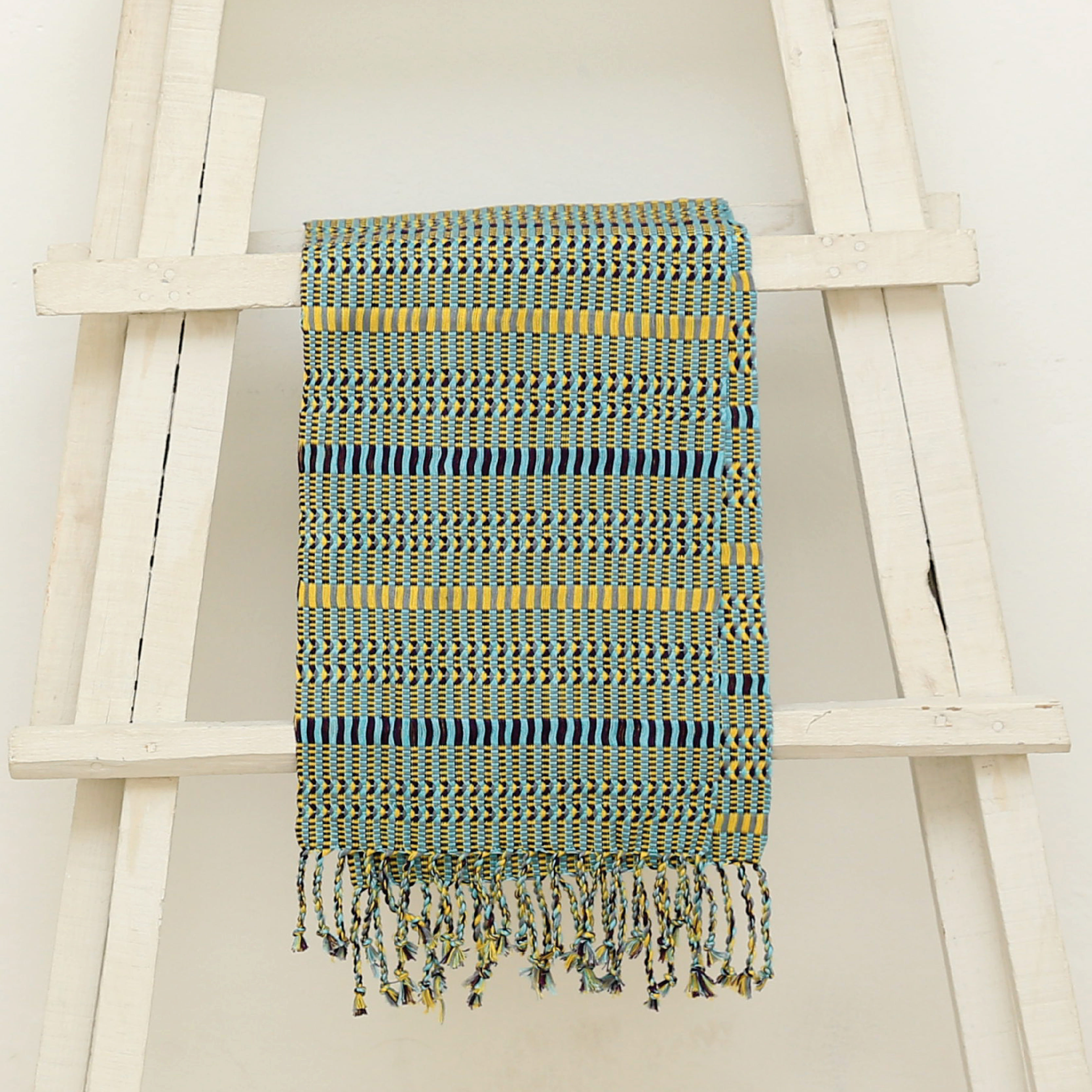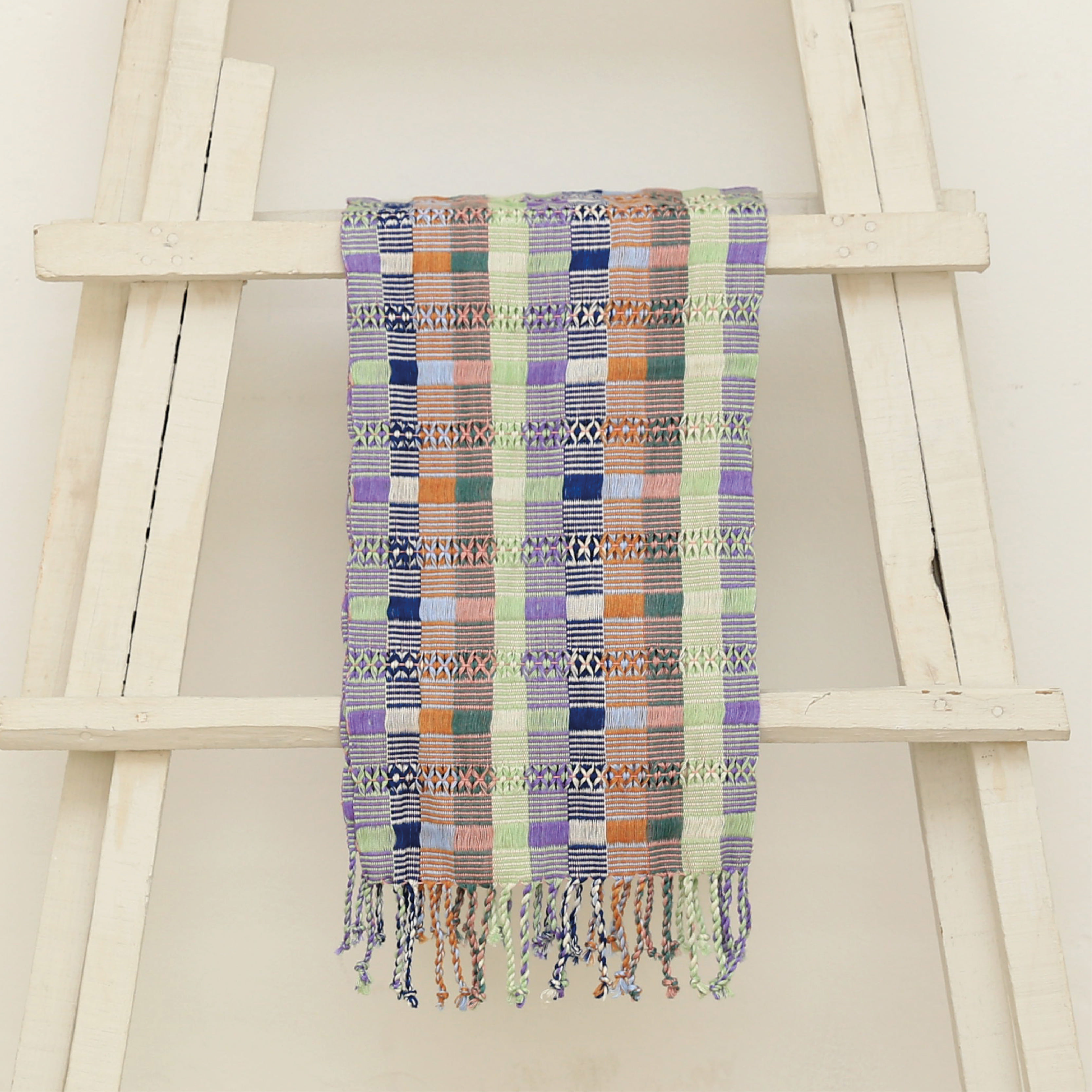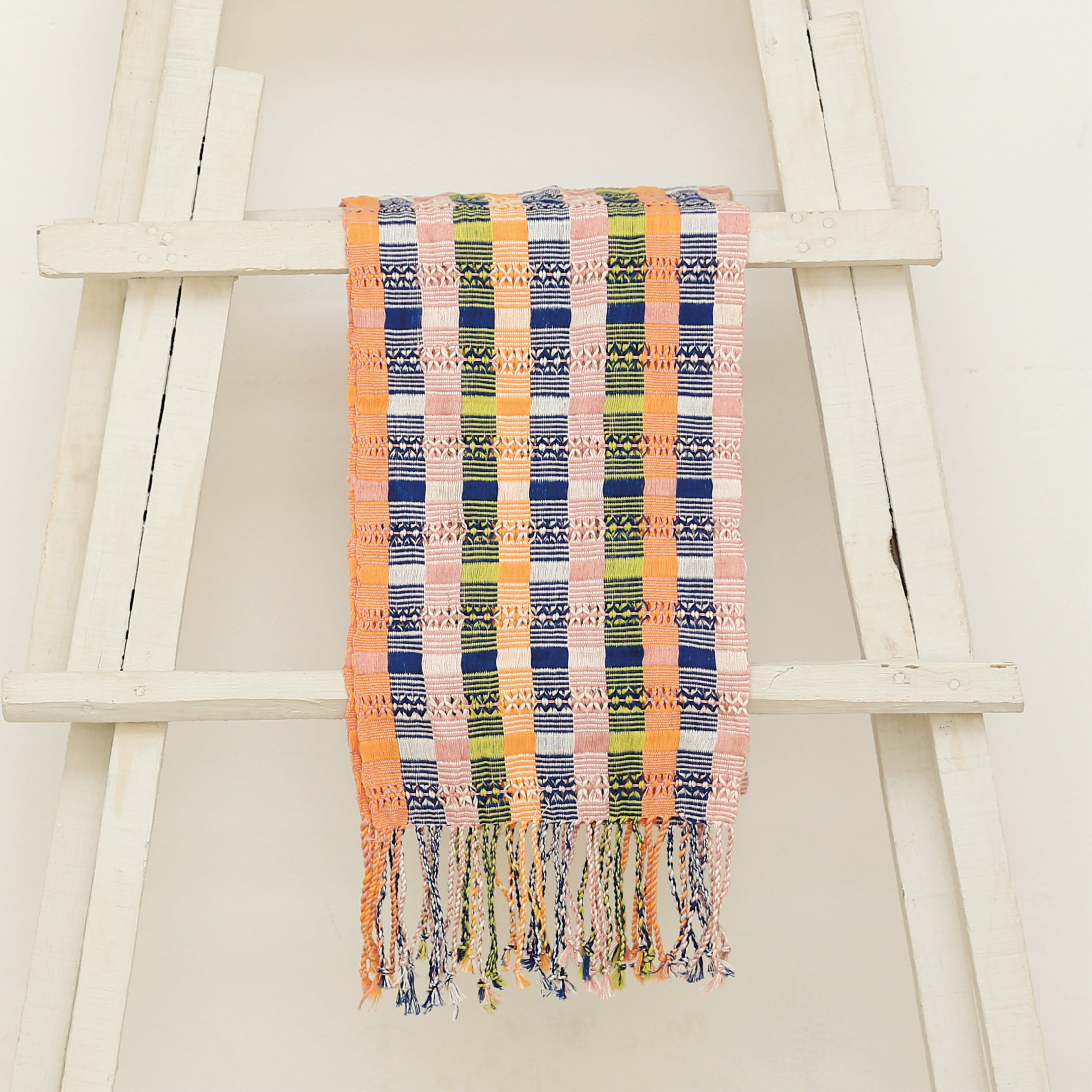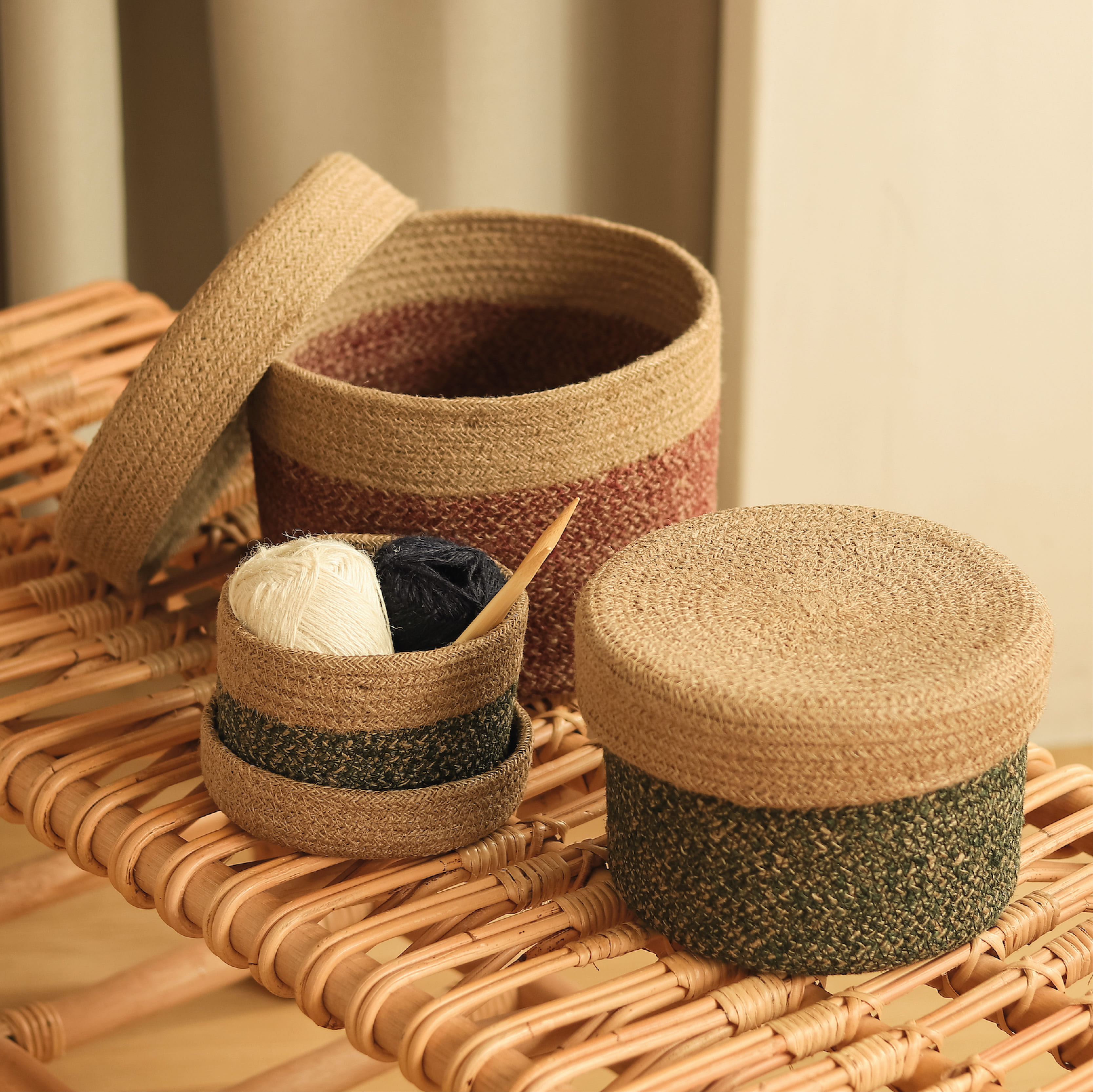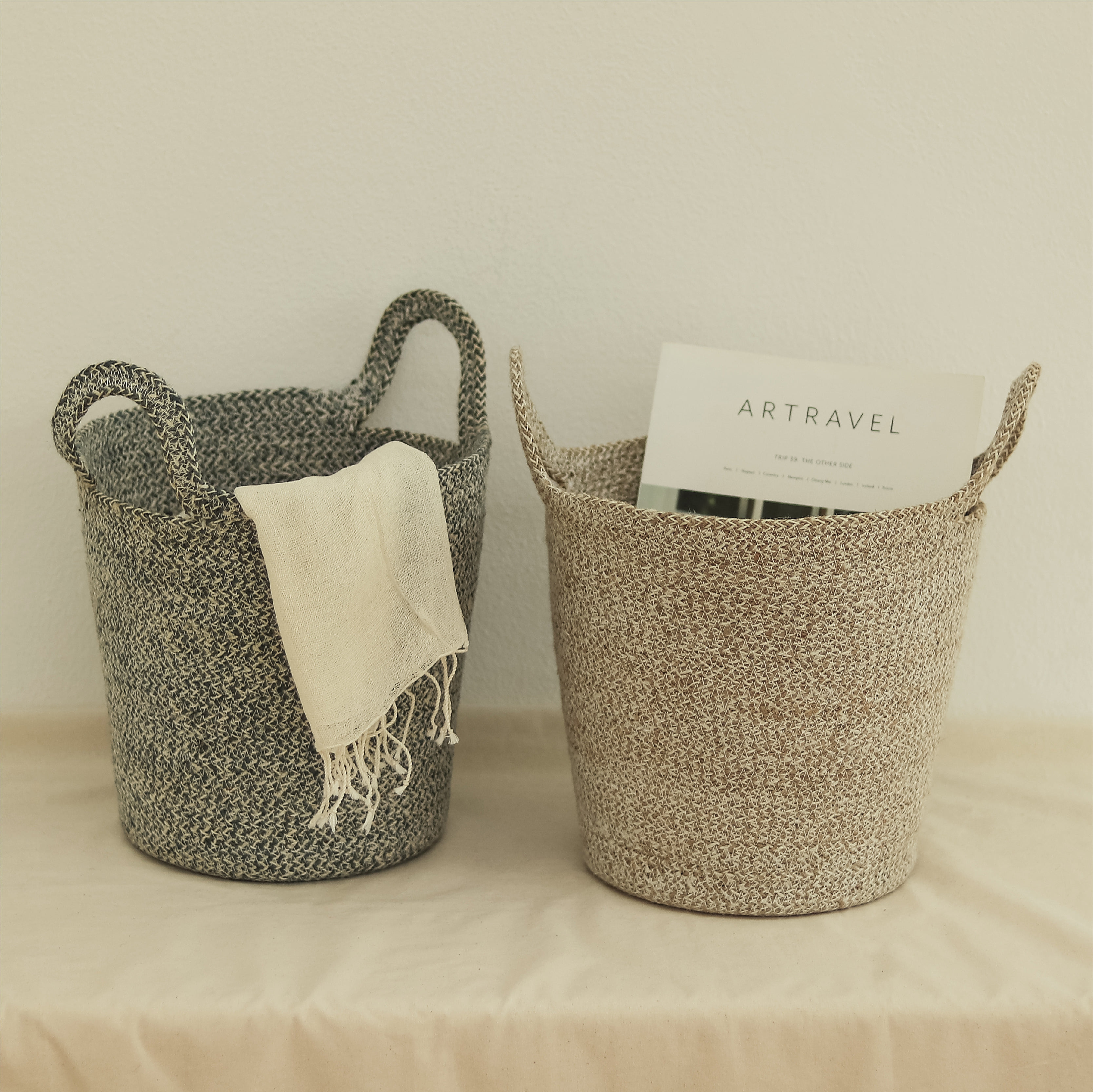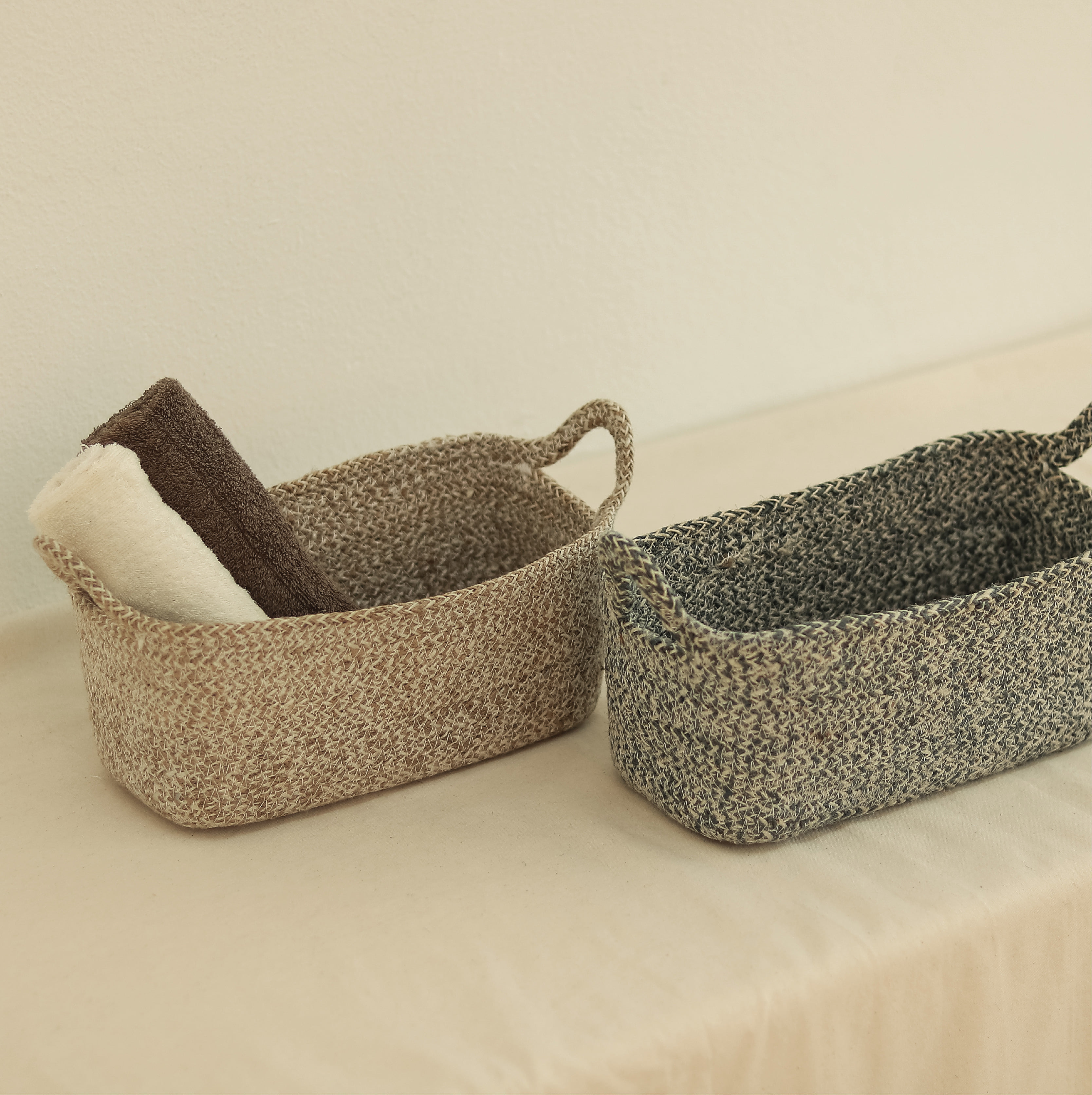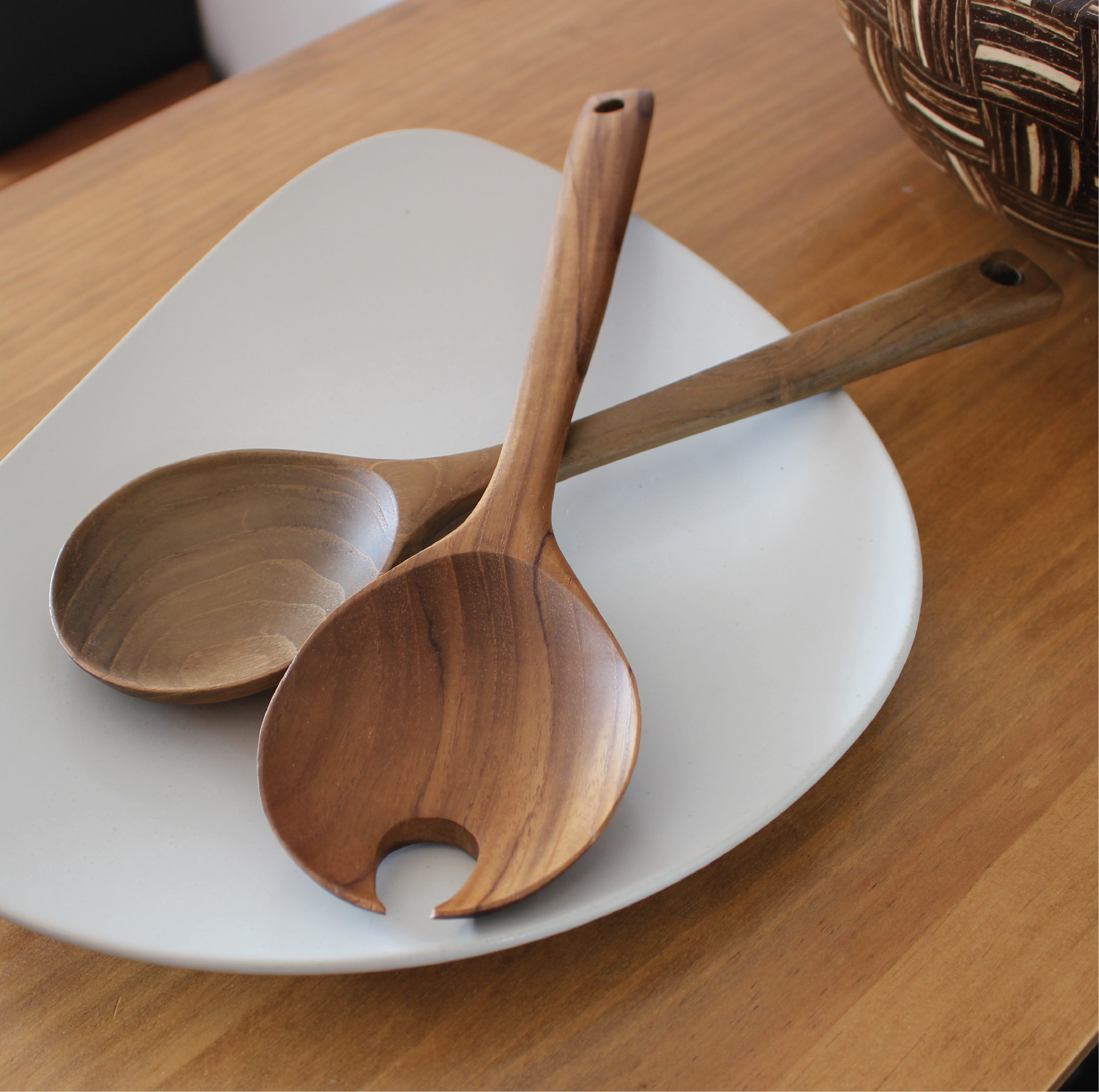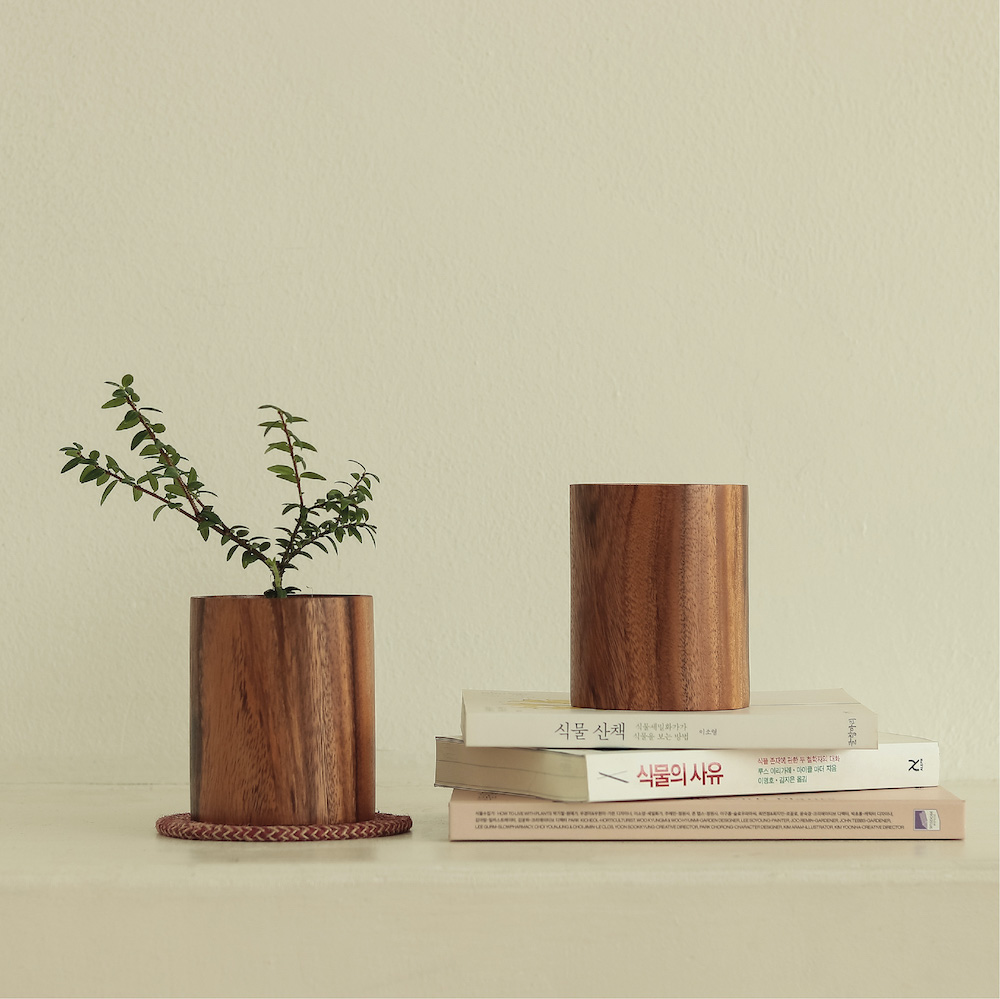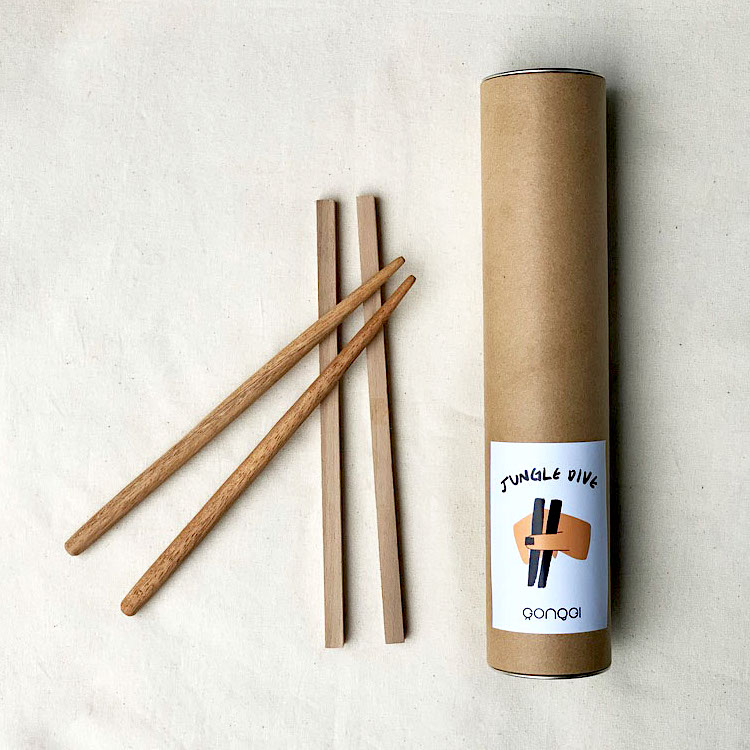FABRIC
GUATEMALA
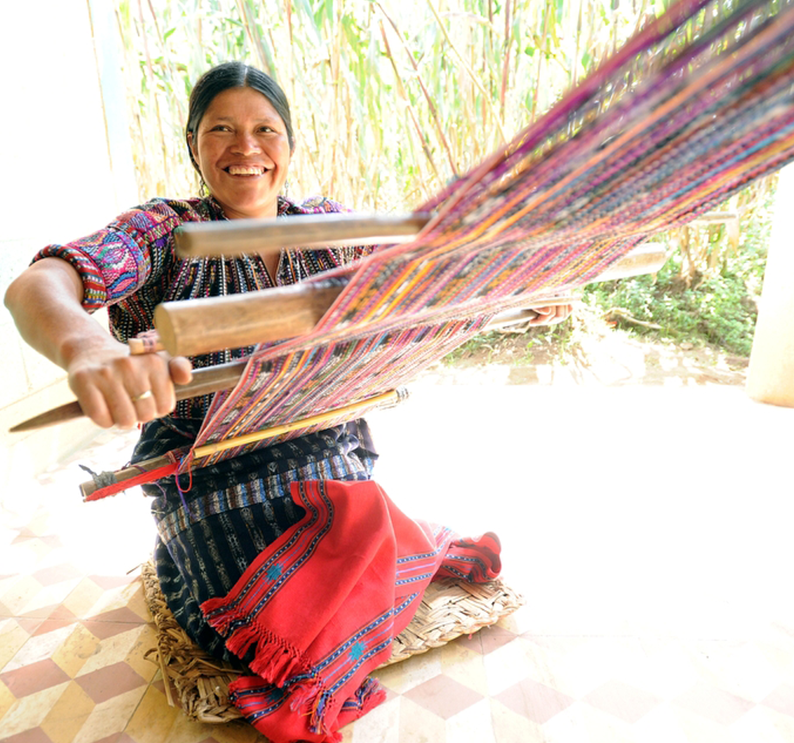
Weavers who create life on a loom
Surrounding the Lake Atitlan in Guatemala, the Maya peoples live in villages of various sizes. The village where Yolanda lives is located in a remote area. Deep into the forest, she should change the bus three times to get there. As a mother of two small children, Yolanda is extremely busy every day. She does the housework, farm works, takes care of livestock, and weaves on a loom. Weaving a little over 25cm fabric takes as long as 2 weeks, but whenever she finds the time, she sits before the loom, called backstrap loom. She then wears the leather belt of the loom around her waist and begins to work. As she moves her body backwards and forwards, weaving the fabric, this portable loom made out of few wooden sticks, threads, and a stationary tree looks like a part of her body, rather than a tool.
Backstrap loom, the core of Mayan tradition
The female artisans who weave textiles with backstrap loom, like Yolanda, are at the center of Mayan civilization. Their backstrap loomed textiles, which are often improvised without a prepared design, represent the long tradition and culture of the Mayan people that have been passed down for generations. A variety of patterns and symbols in the textiles that indicate the mountains, rivers, land, plants and animals, gods and humans, and all kinds of human emotions reflects unique history and culture of each village. Through weaving and embroidery with backstrap loom, the Mayan women have decorated their clothing and household items with patterns demonstrating their wishes for health and happiness of their families, and abundance of their neighbors and village in life, and the symbols of gods and universe, and pursuit of ideals.
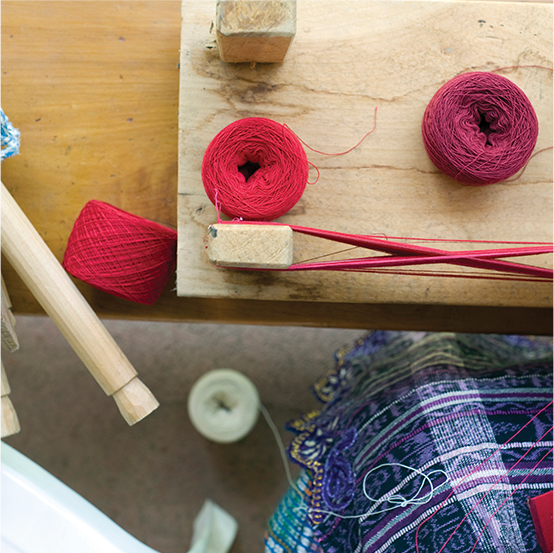
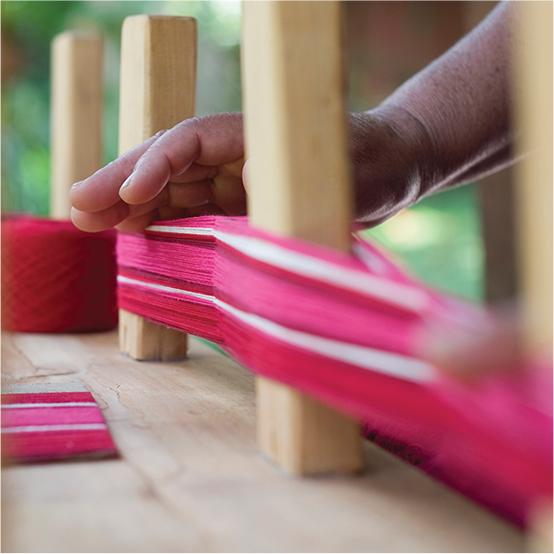
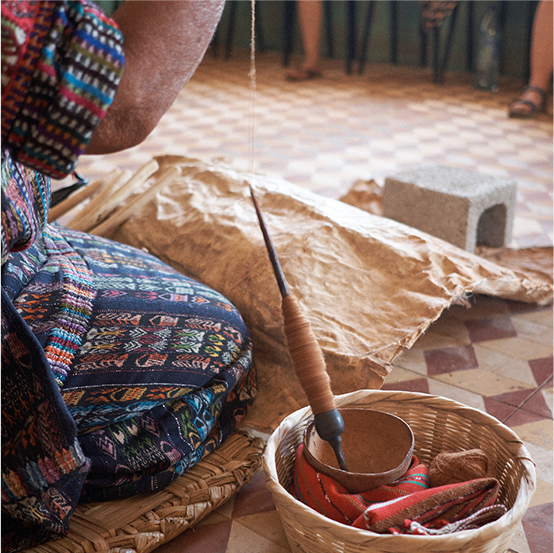
Partnership with Female Artisan Co-Op.
At GONGGI, we work and interact with the female artisan co-ops. in small villages of Maya.
Through the local fair trade organization for small-scale producers, we not only support them with education program for textile pattern design and techniques, and provide production assistance, but also plan and operate various community support programs.
Going beyond a simple distribution work through sourcing, we make new designs and items with the local artisans even though doing so takes more time and effort, because that is what we believe to be the way to make opportunities for the producers to grow.
We try that through GONGGI, weaving on a loom that knits the wishes and dreams of the Mayan people can meet the modern designs.
That way, we can hope that the times of many Yolandas and of ours will be remembered for longer, more vividly.
JUTE
BANGLADESH
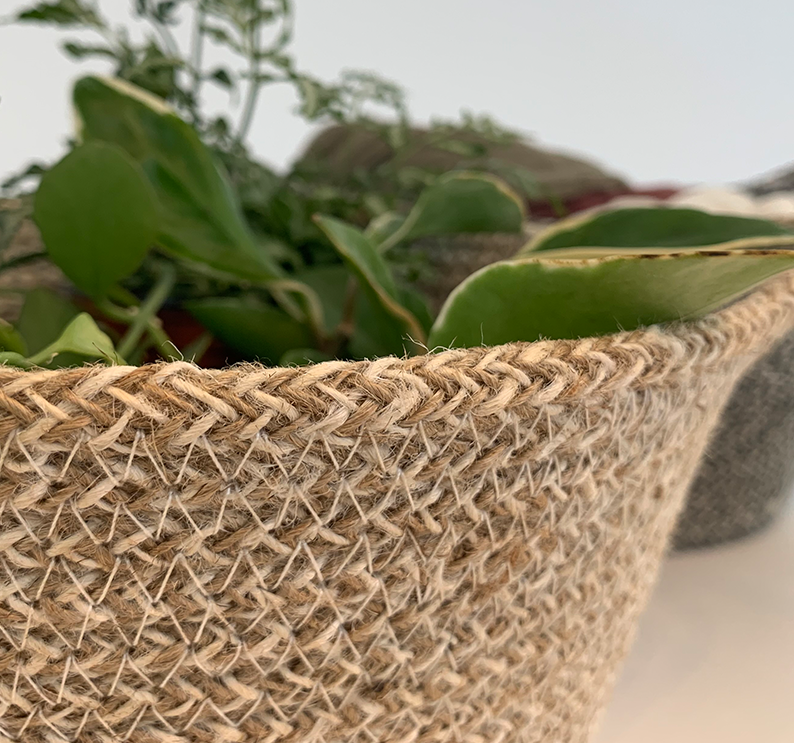
Coarse but warm material, Jute
Jute plants grow so fast that they become taller than an adult person just within a year. They are easily found at the edge of the water in India and Bangladesh. Known to have antibacterial properties, jute plants are eco-friendly material, growing well without agricultural pesticides. Jute, the long and flexible fiber made of the jute plants, can be spun into coarse and strong fabric which has excellent air permeability, fluid absorption, and thermal stability. They are truly valuable natural resources to the locals. Because natural fibers like jute possess high moisture uptake and resistance to rot, they are often used to make marine rope. They are in fact a part of the nature.
Awakening energy of the women in Bangladesh
A fresh second wind is blowing in the Jute Workshop, which has been a bit slow, as GONGGI begins to work with the female artisans in Bangladesh to design and develop jute items.
We can now make our own jute rope, instead of buying them at the market, and get new sewing machines to backstitch thick ropes.
They feel happy through healthy and sound labor, and fill themselves with vital energy.
The jute items that we make in collaboration with the women in Ganda region, feel like mother’s loving touch which used to tidy up the messy room when we were young, so we name the line “Ummaga-gandha” (meaning, “Mom is coming”).
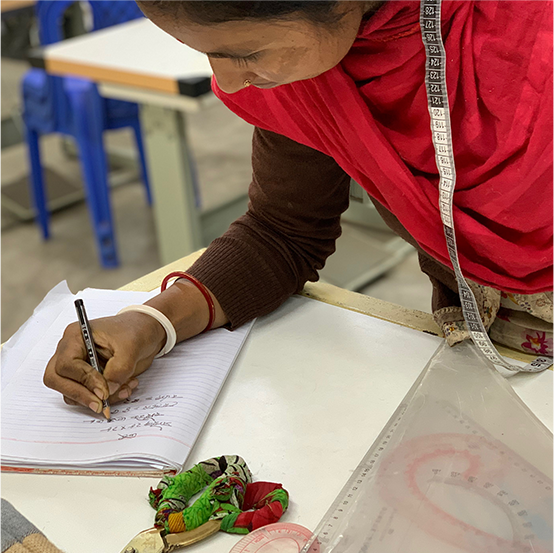
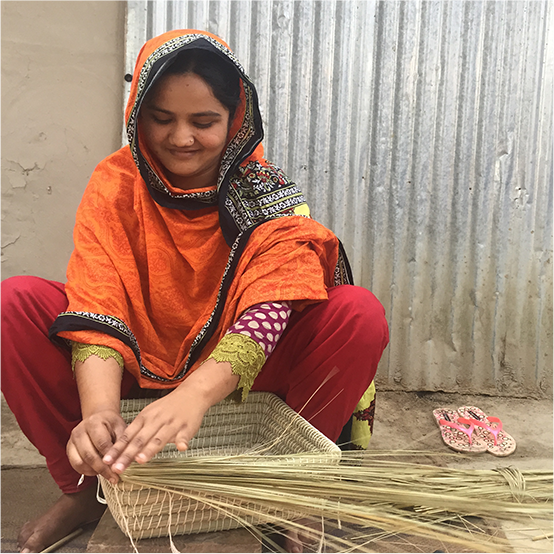
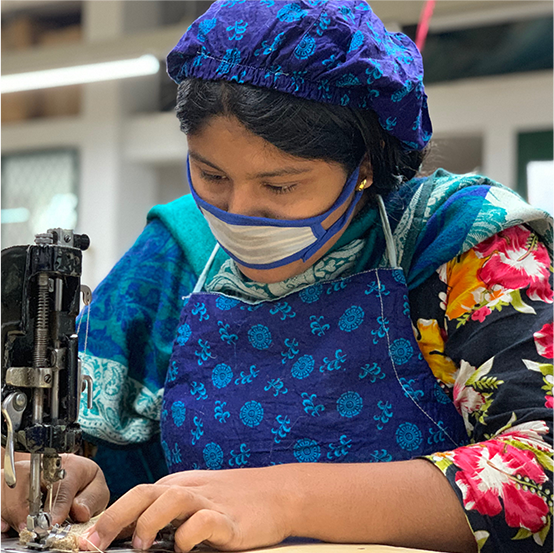
Path to walk with the artisans with small-scale production
The local Fair Trade Producers’ Organization explores talented local artisans in the isolated and marginalized areas of Bangladesh, and supports the artisans’ handicraft production and training based on the fair trade principles.
What is the proper path to walk with artisans with small-scale production?
The answer is, we believe, to make out products have market power and competitiveness.
From this perspective, we strive to enhance our products’ competitiveness by better research and development of handcraft techniques and design based on the natural indigenous materials, and thus help our partner artisans receive a fair treatment in the market.
In Bangladesh, religion and culture are varying from region to region. GONGGI is developing a sustainable living for the artisans in social and economic aspects by providing them with proper economic education and educational support for their children based on the unique characteristics of each region, and walk with them for their self-reliance and economic independence.
WOOD
INDONESIA
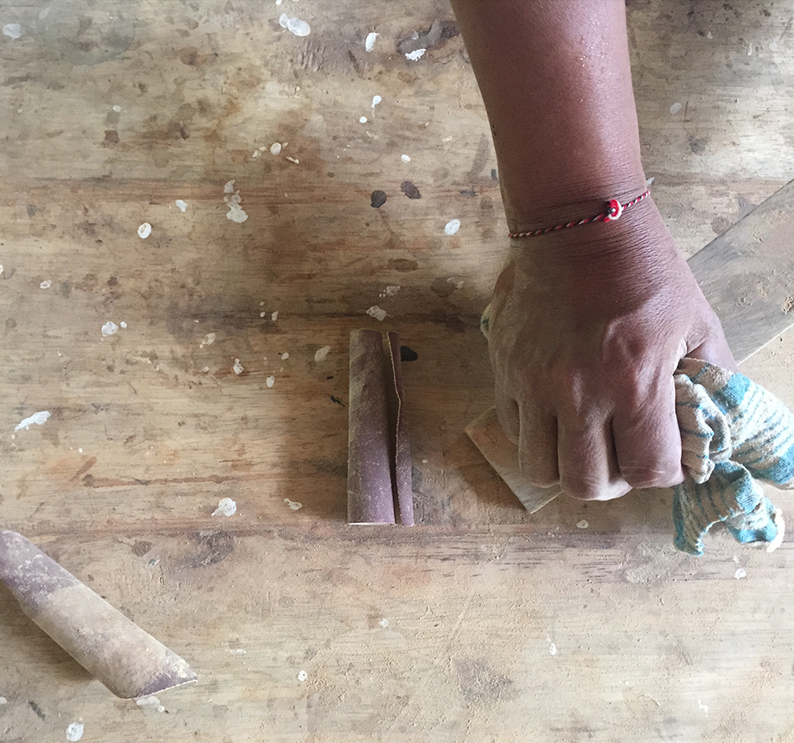
Mr. Putu who cuts and trims the trees
Mr. Putu, a long-time artisan partner of GONGGI, lives in a small village in Indonesia. He cuts trees every day.
That’s what he does for living. With the skills that he learned and has developed for a long time, he cuts and trims the trees to take care of his family, while learning about the life from the trees. To Mr. Putu, too, the collaborate work to make plates and bowls is always a challenge and pleasure.
Looking at the bowls or plates that he makes containing something in a stylish manner, the corners of his mouth turn up – that’s his sense of fulfilment, and the pride. Whenever he catches us, he asks if people like his plates, and if there is anything more to improve, in all seriousness.
GONGGI thanks Mr. Putu and many other Putus in the region, who are probably making fair trade wooden plates and bowls at this moment, with their rough, calloused hands.
Handling and Protecting the Trees
Making our craftworks with Teak and Suar, native trees to Indonesia, we use only as much as we need.
Suar is called by different names depending on the region, but there is no doubt that it is one of the most loved trees in the country because of its durability, lightweight properties, versatile colors, and beautiful wood texture.
In hot sunny days, Suar trees offer you soothing shades, and in rainy days, they fold their leaves to help the water reach down and wet the roots in the deep soil. The most important fact is that they are a fast and easy growing type, compared to other trees, and thus can play an important role in creating a sustainable forest. As GONGGI uses trees as its main material, protecting the woods and forests and preventing illegal logging is a critical mission to GONGGI’s artisan partners in Indonesia.
VGONGGI participates in V-Legal certification program (Timber Legality Assurance System), uses only legally-prepared lumbers, and joins environmental conservation projects, such as Forest Reconstruction Program. At GONGGI, we put our heads together to reduce harmful effect on the forest and help preserve the forest. Using only natural wood without adhesive, and finishing them with plant-based finish for dinnerware, we minimize the possibilities of toxic properties in our products.
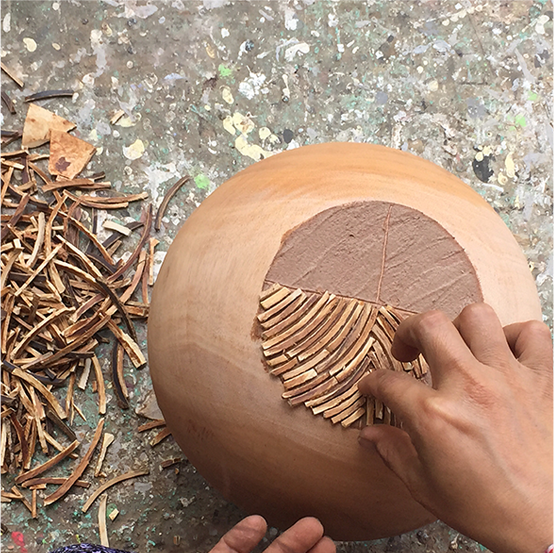
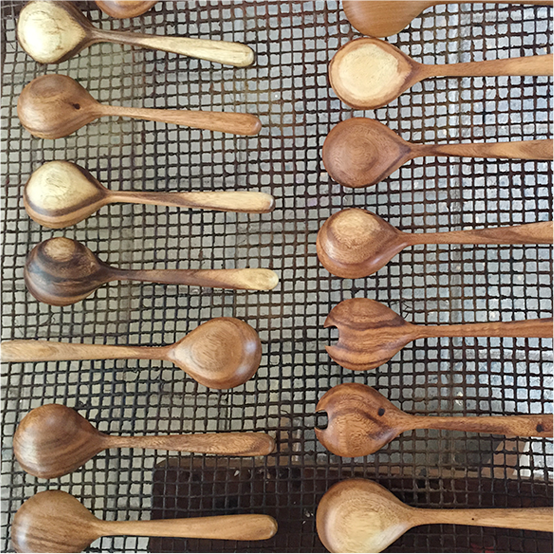
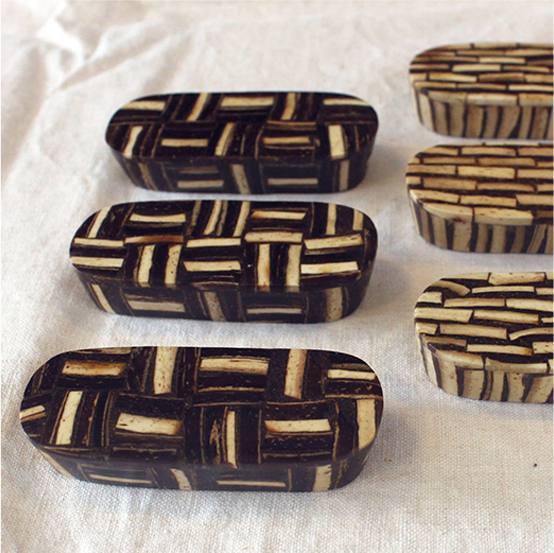
Community that creates a beautiful life together
Indonesia, a dazzling island country, is known for its tourist attractions and super handicrafts. While many tourists visit there and enjoy the beautiful nature and culture of Indonesia, the life of our small-scale production artisans may be endangered.
The Producers’ Organization was created in order to cooperate with the marginalized small-scale manufacturers in the Indonesian market, which has been distorted by the multi-billion dollar tourism industry. It prevents labor exploitation of children and women, support gender equality, and work with local artisans who strive to create healthy work environments. We make our handicrafts with natural materials, such as wood, soil, and stone, and guarantee fair production prices.
We also carry out various community development projects, such as interest-free small loans, sanitation and hygiene education, and educational support for children.

